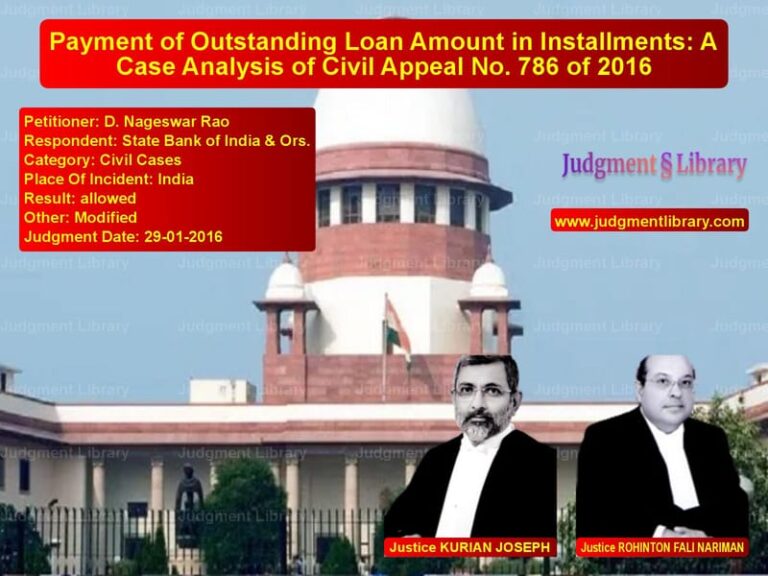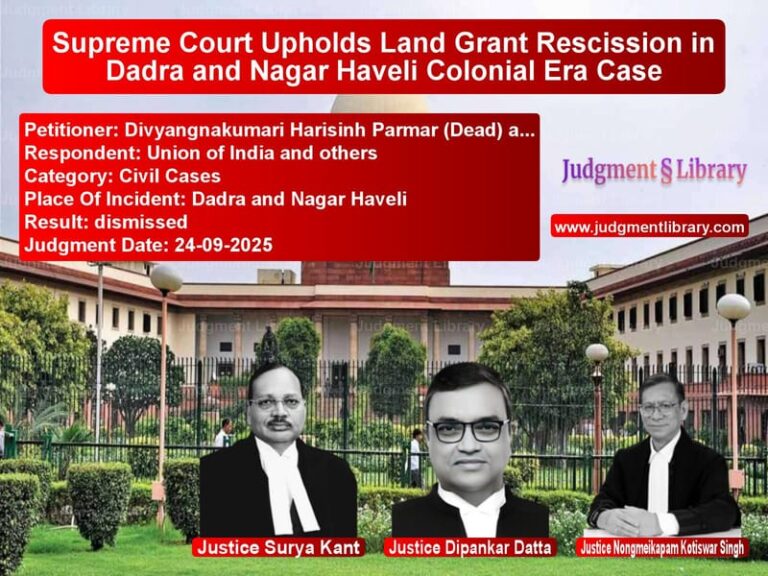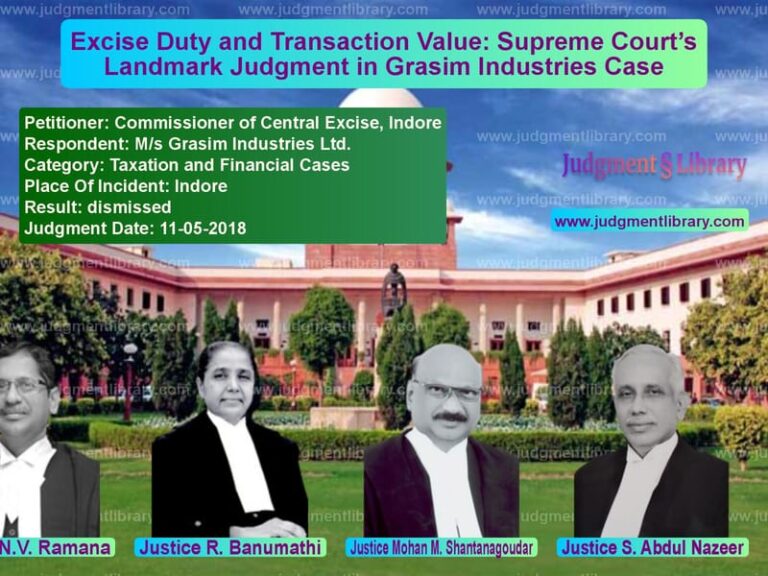Supreme Court Modifies Sentence in Maharashtra Assault Case
The Supreme Court of India recently delivered its judgment in the case of Sahebrao Arjun Hon vs. Raosaheb Kashinath Hon & Others. The case involved a brutal assault on the appellant, resulting in serious injuries, including a fractured skull. The trial court sentenced the accused to three years of rigorous imprisonment, which was later reduced to one year by the Bombay High Court. The Supreme Court reviewed the case and partially restored the trial court’s order by increasing the sentence by six months.
Background of the Case
The case dates back to March 26, 1992, when an altercation took place in front of the appellant’s house in Maharashtra. The appellant, Sahebrao Arjun Hon, was attacked by a group of accused, including Raosaheb Kashinath Hon and others. The altercation began at a local shop but escalated when the accused allegedly arrived with weapons and assaulted the appellant and his relatives.
Legal Proceedings
Trial Court Decision
- The trial court convicted the accused under Sections 326, 324, and 447 read with Section 34 of the Indian Penal Code (IPC).
- They were sentenced to three years of rigorous imprisonment for the offense under Section 326 IPC.
- For the offense under Section 324 IPC, they were sentenced to one year of rigorous imprisonment.
- A fine of Rs. 3,000 was imposed, and in default, the accused had to serve an additional three months of simple imprisonment.
- For the offense under Section 447 IPC (criminal trespass), a fine of Rs. 500 was imposed.
- The trial court directed a compensation of Rs. 1,000 each to be paid to the injured victims.
Bombay High Court Decision
- The High Court upheld the conviction but reduced the sentence from three years to one year of rigorous imprisonment.
- For Section 324 IPC, the accused were released based on the time already served.
- The High Court imposed an additional compensation of Rs. 20,000 per accused to the victims.
Arguments Before the Supreme Court
Arguments by the Appellant
- The appellant argued that the High Court had been excessively lenient despite the severity of the injuries.
- The appellant suffered 11 injuries, including a depressed skull fracture, which was classified as life-threatening.
- The doctor who treated the appellant stated that his condition was serious at the time of admission.
- The trial court had already shown leniency by sentencing the accused to three years instead of life imprisonment (the maximum punishment under Section 326 IPC).
Arguments by the Respondents
- The respondents argued that if the Supreme Court wished to review the sentence, the case should be remanded to the High Court.
- They pointed out that the incident had occurred in 1992 and that the accused had already served a part of their sentence.
Supreme Court’s Observations
1. The High Court Was Excessively Lenient
The Supreme Court noted that the trial court had already taken a lenient approach by sentencing the accused to three years instead of imposing a harsher sentence. The injuries sustained by the appellant were severe and life-threatening.
2. Principle of Proportionality in Sentencing
The Court emphasized the principle that the punishment must be proportionate to the crime:
“If undue sympathy is shown by reducing the sentence to the minimum, it may adversely affect the faith of people in the efficacy of law.”
3. Seriousness of Injuries
The medical reports confirmed that the appellant suffered multiple fractures and required stitches on multiple wounds. The Court held that such injuries warranted a stricter sentence.
4. No Provocation for the Attack
The Court observed that the attack was premeditated and that the accused had come armed with weapons. There was no justification for reducing their sentence.
Final Verdict
The Supreme Court modified the High Court’s ruling as follows:
- The sentence under Section 326 IPC was increased by six months, making it a total of one and a half years of imprisonment.
- The additional compensation was increased by Rs. 40,000, to be equally distributed among the victims.
- The accused were directed to surrender before the trial court within six weeks to serve the additional imprisonment.
Impact of the Judgment
This ruling has significant implications for criminal law and sentencing:
- It reinforces that serious injuries in assault cases must attract appropriate punishment.
- Courts must balance mitigating and aggravating circumstances while deciding on sentencing.
- Reducing sentences without justification weakens public confidence in the justice system.
Conclusion
The Supreme Court’s ruling in Sahebrao Arjun Hon vs. Raosaheb Kashinath Hon strengthens the principle of proportional sentencing. By restoring a part of the trial court’s original sentence, the judgment ensures that violent crimes are met with appropriate punishment, thereby upholding the rule of law.
Read also: https://judgmentlibrary.com/supreme-court-dismisses-review-petition-in-madhya-pradesh-murder-case/
Petitioner Name: Sahebrao Arjun Hon.Respondent Name: Raosaheb Kashinath Hon & Others.Judgment By: Justice Surya Kant, Justice Abhay S. Oka.Place Of Incident: Maharashtra.Judgment Date: 06-09-2022.
Don’t miss out on the full details! Download the complete judgment in PDF format below and gain valuable insights instantly!
Download Judgment: sahebrao-arjun-hon-vs-raosaheb-kashinath-h-supreme-court-of-india-judgment-dated-06-09-2022.pdf
Directly Download Judgment: Directly download this Judgment
See all petitions in Attempt to Murder Cases
See all petitions in Bail and Anticipatory Bail
See all petitions in Custodial Deaths and Police Misconduct
See all petitions in Judgment by Surya Kant
See all petitions in Judgment by Abhay S. Oka
See all petitions in partially allowed
See all petitions in Modified
See all petitions in supreme court of India judgments September 2022
See all petitions in 2022 judgments
See all posts in Criminal Cases Category
See all allowed petitions in Criminal Cases Category
See all Dismissed petitions in Criminal Cases Category
See all partially allowed petitions in Criminal Cases Category







